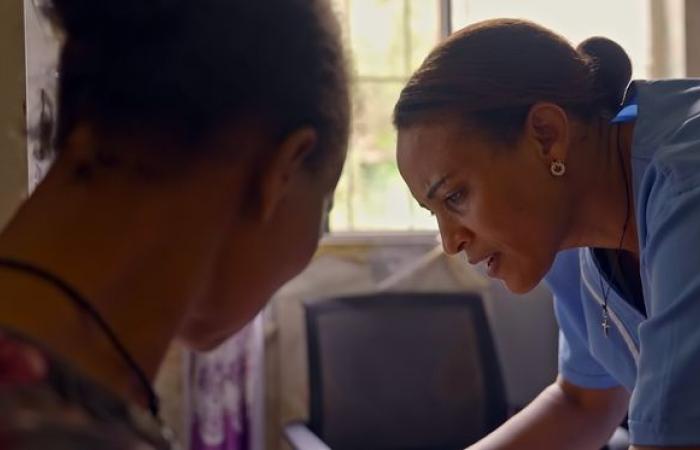In Tigray, an Ethiopian province fighting against central power, women raped during the war (2020-2022) suffer a double punishment. After having their dignity stolen, they are ostracized by a traditionalist society governed by the mores of the Orthodox Church, within which their ordeal and their suffering are taboo. It is on the fate of these women that the documentary focuses Tigray: rape, the silent weaponby Marianne Getti and Agnès Nabat, broadcast Saturday November 23 at 6:35 p.m. on Arte and from Friday on the channel's website.
Read also | In Ethiopia, “die or be raped”, the ordeal of thousands of women during the occupation of the rebel province of Tigray
Read later
Between 2020 and 2022, in the opacity of the war, far from television cameras, a tragedy played out behind closed doors: a fratricidal conflict (at least 600,000 dead, according to the African Union) and torture hundreds of thousands of women by the occupier, the Ethiopian troops and the historic enemy from neighboring Eritrea. Two years later, the veil is difficult to lift on the crimes suffered by these invisible victims. At least 120,000 women were raped during the war, Tigray regional authorities estimate.
How can we rebuild these broken destinies, these lives and these bodies in tatters, two, three, four years later? How can we reintegrate these women filled with shame and ostracized from society? The directors take us into the path of two extraordinary beings: Meseret Hadush, a former pianist and local reality TV star, and Mulu Mesfin, a nurse at the public hospital.
Stations of the Cross
Both are in line with Doctor Denis Mukwege, “the man who repairs women” in the east of the Democratic Republic of Congo (DRC), Nobel Peace Prize winner in 2018. Their common mission: to prevent the enemy from winning a victory which, in addition to having martyred their bodies, destroys the place of these women in society.
Read also | “Rapes in Tigray, the silent weapon”, on Arte: the ordeal of 120,000 women sexually assaulted
Read later
“We are bathed in shame, our husbands hate us, politicians reject us! »shouts a victim. “We felt too dirty to kiss the cross”confides another who, considering herself impure, no longer dares to venture into a church, the base of Ethiopian Orthodox civilization. Not to mention illegitimate children, products of rape, rejected by the community. A mother who was unable to have an abortion watches her son play in a displaced person camp: “Now he’s my son, what can I do?” I wonder what future he will have. Mine no longer matters to me anymore…”
For these women, the way of the cross continues. Until when? Alone, excluded from their homes, hidden by a society that refuses to admit their ordeal, abandoned by local authorities ready to sacrifice this painful past on the altar of political transition. Finally, they are faced with the denial of their nation, Ethiopia, and its leader, the former Nobel Peace Prize winner Abiy Ahmed, whose long work of dehumanization of the Tigrayans (6% of the population) served as breeding ground fertile for these mass rapes.







